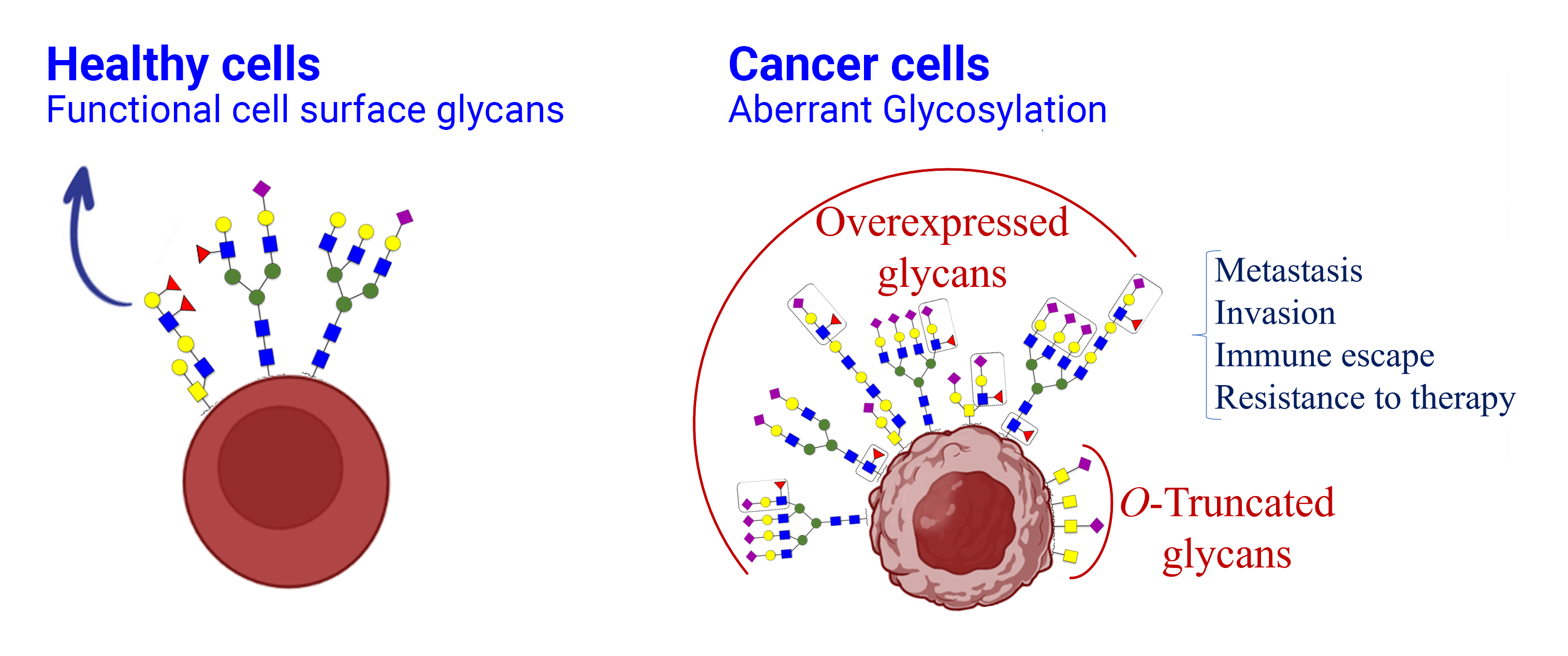A training network on the design of precision therapeutics that target key glycan motifs implicated in cancer
GlyCanDrug is a European Training Network funded in the framework of HORIZON Marie Skłodowska-Curie Doctoral Networks (DN). It is a glycoscience-oriented DN that aims, for the first time, to take a step ahead in the design of precision therapeutics targeting key glycan motifs implicated in cancer.
These glycans are fingerprints of many cancers. Thus, their targeting has the striking potential to overcome cancer heterogeneity that limits the current targeted therapies providing new opportunities for the discovery of precision therapeutics. The credibility and high quality of GlyCanDrug are ensured by top-level glycoscientists from 9 academic institutions (8EU & 1US) and 6 SMEs which encompass complementary and intersectoral expertise, and unique state-of-the-art technological tools to train 10 doctoral candidates (DCs).
GlyCanDrug focuses on the precise inhibition of the expression of cancer-associated glycans and the development of cutting-edge tools for their targeting. The unique combination of scientific excellence in interdisciplinary fields and industry know-how will cover the entire process from obtaining fundamental insights to the implementation of innovative solutions.
GlyCanDrug aims at creating a critical mass of uniquely skilled graduates in glycan-based therapies. To this aim, we will equip DCs with a thorough multifaceted knowledge of the potential of glycoscience in the discovery of cancer precision therapeutics and the necessary transferable skills. This will put DCs in an advantageous position for job opportunities in both academia and industry. Deciphering the glycome expands the frontiers of knowledge and discovery and enables addressing fundamental challenges in cancer. Therefore, GlyCanDrug DN will strengthen the European innovation capacity by bringing new glycoscience concepts in the development of cancer precision therapeutics to market and policy stakeholders.
Examples of different sugar “coats” in healthy and cancer cells

